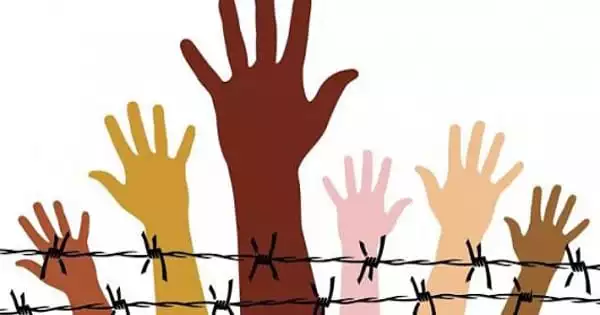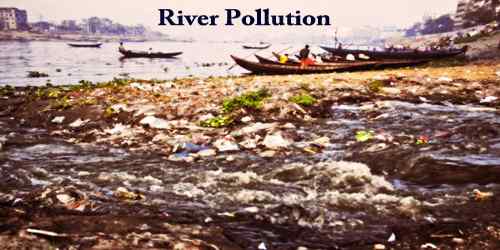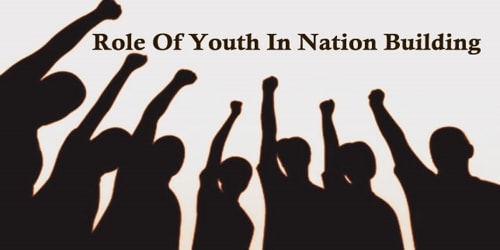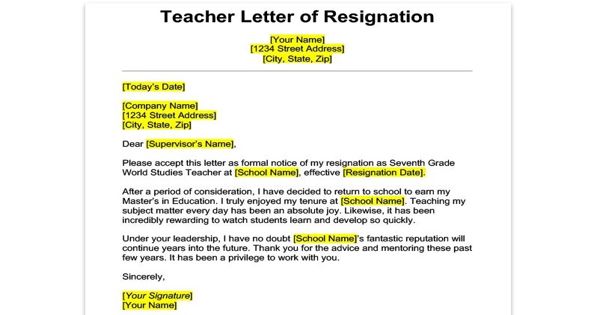Human Rights are the obligation of the state to ensure that everyone has the right to adequate food, education, and the best possible physical and mental health. The State must respect these rights and make them available to citizens.
Human rights violations must be very common these days. Human rights are being violated every day and at every moment, somewhere in the world, according to newspapers and television. In general, ‘Human Rights’ refers to an individual’s right to life, liberty, equality, and dignity, regardless of caste, creed, or gender. These are natural rights that must be protected in order for a person to live in peace. Despite the fact that our Constitution protects human rights, violations of these rights occur on a regular basis.
Every country in the world faces a significant challenge in protecting and preserving human rights. Cases of violence, murder, torture, rape, child abuse, death by starvation, death by dowry, sexual harassment, and custodial death have become all too common in society.
The National Human Rights Commission (NHRC) has only scratched the surface of the problem of human rights violations. However, the NHRC cannot be blamed when the entire society is to blame for Human Rights violations in some way. It is not possible for the NHRL to monitor every human being in the country.
Dr. Justice A.S. Anand, Chairperson of the National Human Rights Commission, has emphasized that it is the State’s obligation to ensure everyone’s right to adequate food, education, and enjoyment of the highest attainable standards of physical and mental health. These rights must be respected and made available to citizens by the state, said Justice Anand at the opening of a two-day Capacity Building Workshop on “Economic, Social, and Cultural Rights,” co-hosted by the National Human Rights Commission and the Indian Institute of Public Administration.
According to the International Covenant on Economic, Social, and Cultural Rights, a State Party is obligated to use all steps to achieve the progressively full realization of the rights recognized in the covenant, including the adoption of legislative means to be exercised on a non-discriminatory basis, according to Justice Anand.
“India, as a signatory to the Universal Declaration of Human Rights, the International Covenant on Economic, Social, and Cultural Rights, and other international instruments, is legally and morally committed to ensuring basic human rights to all its citizens and enacting laws to that end,” he said.
With each passing year, the Commission’s conviction has grown that, in order to ensure the right to live in dignity, equal emphasis must be placed on economic, social, and cultural rights, as well as civil and political rights. The indivisibility and interconnectedness of these rights is a reality, and there is a symbiotic relationship between them. Those working in the field must therefore ensure that their concern and anxiety for political and social rights is also manifested in economic, social, and cultural rights, he said.
The country’s abject poverty denies basic Human Rights to millions of poor people in our country. Poverty is a major contributor to a wide range of human rights violations. Child labor, bonded labor, and illiteracy are all examples of human rights violations. Women’s human rights are violated from conception to death. Even the right of a female fetus to be born is violated by sex determination tests, which result in the termination of a female fetus. Even today, female infanticide is common in many parts of the country.
Sexual abuse of female children, dowry deaths, a thriving flesh trade, rape cases, and the pitiful conditions of widows in Vrindavan and Varanasi are just a few of the egregious violations of the rights of the fair sex.
Ours is a male-dominated society in which women are treated as subordinates. In reality, most women have no rights at all; they live first according to the wishes of their parents, then after marriage according to the whims of their husband, and finally, in old age, according to the convenience of their sons and daughters-in-law.
The NHRC has attempted to put a stop to human rights violations in a variety of areas. In April 2000, the Commission directed the states and union territories to videotape the post-mortem examination in all cases of custodial deaths. Over the last two years, there have been over 1000 custodial deaths, with Bihar topping the list. The Commission has requested that state governments educate police and jail officials. The NHRC investigated victimized women’s cases from all angles. It has also suggested that the monthly maintenance allowance for divorced women be increased from Rs. 500 to Rs.5000.
Cases of violations of children’s rights, such as child trafficking, juvenile imprisonment, and child marriage, have also been investigated by the NHRC. The NHRC vigorously pursued cases of rape, death, and detention without trial. The NHRC recently took up the case of Best Bakery in Gujarat and filed an application with the Supreme Court. The Supreme Court heard the case and determined that the State conducted the investigation and prosecution in such a way that the conviction was ruled out.
The Indian Constitution’s Founding Fathers had a vision of Indian society that they hoped to realize through the Constitution. The Preamble, the chapters on Fundamental Rights, and the Directive Principles of State Policy primarily reflected this vision. In some ways, the Fundamental Rights and the Directive Principles of State Policy are the result of the country’s human rights movement. It is the responsibility of the state to ensure what is stated in the Constitution. However, shocking evidence suggests that the State is the perpetrator, according to Mr. J.S.Verma, the former chairman of the NHRC.
According to a statement he made on January 15, 2003, just a few days before resigning, “It is often the State that is a violator of Human Rights in the majority of cases in the country.” However, the State bears the primary responsibility for protecting and safeguarding the rights of its citizens.”
Dr. Justice A.S. Anand, Chairperson of the National Human Rights Commission, emphasized the importance of making human rights the focal point of good governance. He urged National Human Rights Commissions to play a larger role in the work of the United Nations, its treaty bodies, and specialized agencies, emphasizing the importance of further developing cooperation between them.
On the 14th of April 2004, he delivered a statement to the 60th Session of the Commission on Human Rights in Geneva. He emphasized that the protection of human rights necessitates not only the vigilance of various agencies but also long-term cooperation at the regional and international levels.
There is no Commission or Police Station that can police every nook and cranny of the country. No NGO or other organization can be everywhere at the same time to protect human rights. It is our duty as a people, and the duty of every civilized person, to rise to the occasion. This can only be achieved through widespread awakening, in which everyone understands the eternal values of life and the dignity of every individual, regardless of caste, creed, or gender. According to Swami Vivekanand, the “Self in you is the Self everywhere.”
















